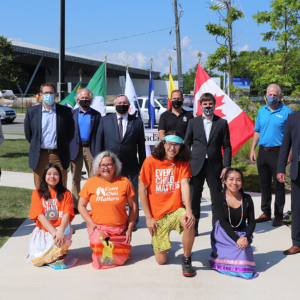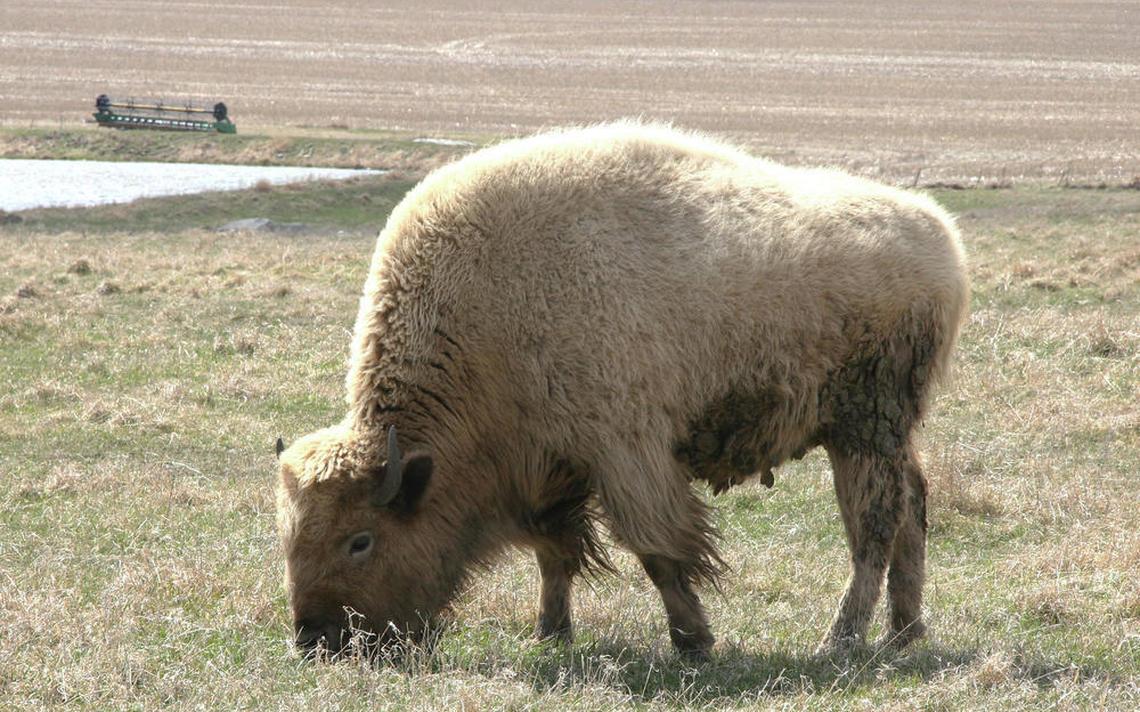On Thursday September 5, 2013, United States Attorney Richard Hartunian (Northern District of New York), surrounded by the police chiefs of the Oneida Indian Nation of New York and the St. Regis Tribal Police, spoke at a press conference in Massena, scene of a multi-agency sweep for heroin dealers originating in New York City.
The presence of the tribal police agencies alongside a multitude of federal as well as regional law enforcement departments at Massena Town hall was noted in Akwesasne by community members. Some have wondered if the tribal police participation ties in with pending agreements signed with New York State Governor Andrew Cuomo in the area of Class III gaming revenue sharing, and which also include some provisions involving tobacco and tax issues, according to published reports. These agreements are contingent upon the passage of a New York State voter referendum on gambling in the fall.
The U.S. Department of Justice media release of the press conference listed the following agencies as participants in the operation: Homeland Security Investigations (HSI), the Massena Police Department (MPD), the Saint Lawrence County Sheriff’s Office, and the New York State Police (NYSP), the District Attorneys of Clinton, Franklin, and St. Lawrence Counties, the Saint Regis Mohawk Tribal Police Department, the United States Customs and Border Protection Office of Air and Marine, the United States Customs and Border Protection Office of Field Operations, the Drug Enforcement Administration, the Potsdam Police Department, the Royal Canadian Mounted Police, the New York Attorney General’s Office, the Oneida Indian Nation Police, and the United States Border Patrol.
The early morning operation was punctuated by the presence of three helicopters hovering over areas of downtown Massena, including the Grasse River and other Mohawk land claims areas. The helicopters, described as tactical assets by a Buffalo-based special agent from U.S. Homeland Security, pertain to the United States 1796 Treaty with the Seven Nations of Canada. Some regional online comment forums expressed alarm at the startling presence of helicopters at such low levels in an urban environment on the first day of classes in the Massena Central School District.
None of the arrested subjects from the police sweep, dubbed Operation Problem Child, had any known association with the nearby Akwesasne Territory. Authorities at the press conference failed to point to any specific organized crime elements or organizations necessitating tactical aircraft and support personnel. According to online regional comment forums, one group based in Massena may be affiliated with the Juggalos Insane Clown Posse social movement, while other forum comments seemed to cast doubt on any actual New York City connection to Bloods or Crips groups located there.
Some Akwesasne residents who attended the press conference were skeptical of what they heard from the special agent from the U.S. Department of Homeland Security, who had apologized for any citizen alarm caused by the use of tactical team aircraft during the operation. After the police function had ended one Akwesasne observer noted that the involvement of New York State-certified tribal police forces gave the appearance that the tribes were being treated as equals within the operation. If that was the case, the Onkwehon:we man asked, then why was the tobacco trade being obstructed by federal agencies, including the same U.S. Attorney’s Office, who claimed “concurrent jurisdiction” over both New York and Akwesasne.
Older social-political activists from Akwesasne and Kahnawake pointed to previous incidents such as the publicized plans of former New York State Governor Mario Cuomo to invade several Iroquois reservations in the 1990s, under the “Gallant Piper” military plan, to implement state law enforcement. Only twenty years ago, the use of state National Guard units to provide manpower in that operation implied a combined arms approach to dealing with Onkwehon:we populations. Others in Akwesasne recall revelations concerning the Canadian military’s plans to occupy Akwesasne through the Operation Campus / Scorpion-Saxon programs.
The Massena drug-arrests are also relevant to the lingering concerns of gun-owners in New York State who took to online forums to speculate that the black-colored helicopters seen at the Town of Massena airport would soon be used to assist in confiscating their own firearms, in addition to those recovered by the police sweep teams.
One Massena resident originally from Akwesasne commented that firearm ownership in Akwesasne was a necessary socio-political counterweight to omnipresent federal police and undercover agents within the St. Lawrence River international region. Though owning firearms is considered to be as “American as apple pie”, that does not make Akwesasronon “American citizens” as the concurrent legal jurisdiction claim implies, according to the commenter. He also recalled gun-owners’ widespread, outspoken fears when the New York Governor challenged his own (non-native) voter base by pushing the SAFE gun registry act through the state legislature in 2012, a memory that has put everyone on edge.
There were some exceptions to the skepticism shown by Akwesasne community members. One Massena resident expressed relief at hearing the hovering helicopters, assessing them as a sign that her town was being taken back from the criminals. And following the police press conference, two women stood in front of the Massena Town Hall, serving free lemonade and carrying signs asking supporters of the police forces’ operation to honk if they applauded the action.
The tribal police forces involved in the operation are no strangers to their respective local news reporters. Recently the Oneida Indian Nation Police celebrated a twentieth year anniversary of community service. On the other hand, St. Regis Tribal Police Commission, which purports to oversee the tribal police department, was recently vacated. Why? So that a new police commission could be put in place to counteract concerns by some Akwesasne residents that tribal officers were selectively issuing tribal traffic court citations for certain tribal members and were referring other Onkwehon:we to the nearby Town of Bombay court for New York jurisdiction. The Franklin County District Attorney, Derek Champagne, who took part in Operation Problem Child, had previously offered to employ a native prosecutor in that court to handle the many prosecutions of Akwesasne residents, which equaled the number seen in the largest court in the same county at Malone, New York, for the same year in 2012. In published reports Mr. Champagne has called for a jail to be built in Akwesasne to house these many convicted offenders, saying that without such a correctional facility, there can be no sovereignty in Akwesasne.
Akwesasne residents themselves remain unconvinced that the recent police sweep is not a warmup for a possible crackdown on recently publicized “contraband” cigarette factories located in Akwesasne, or a possible way to put pressure on industrious Onkwehon:we who have been operating successful businesses despite badgering interference from federal, state and provincial police forces. Surely the intent of the Two Row Wampum agreements is that these forces should recognize and uphold rights from an Onkwehon:we perspective, not contravene them.
By Charles Kader.








Comments are closed.